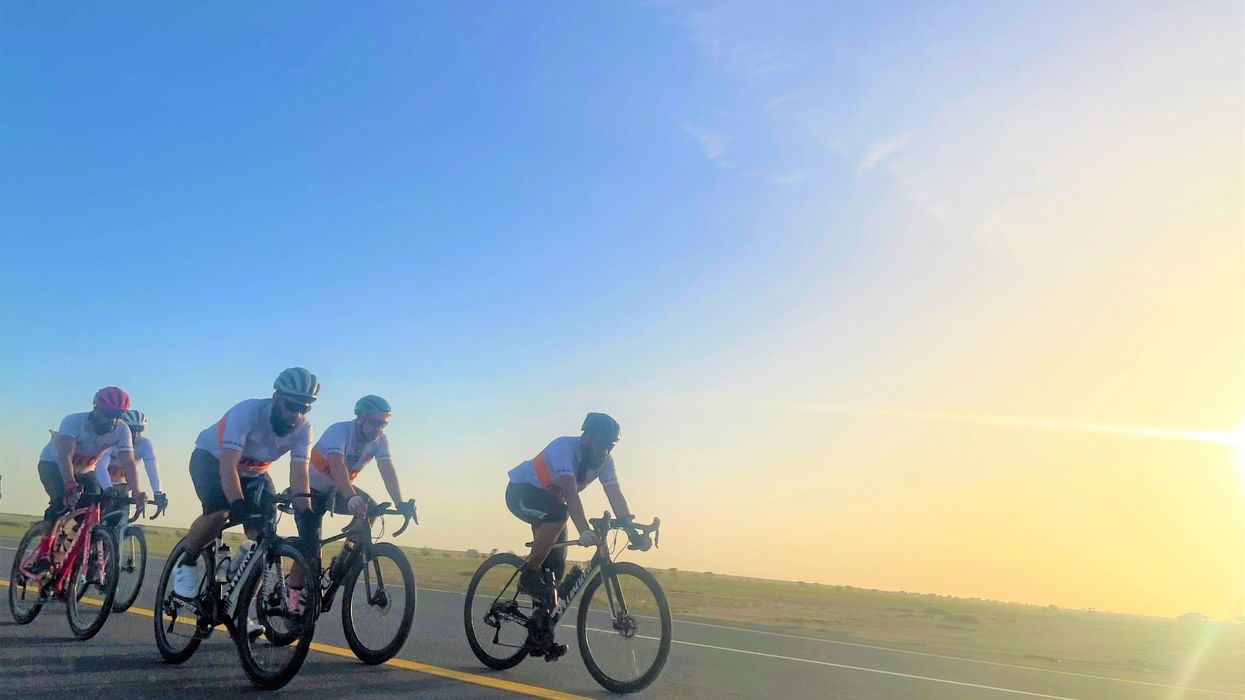Members of a London-based cycling club, who cycled from Makkah to Madinah in February to raise money to provide life-saving surgery for children with congenital heart defects, travelled to Tanzania last week to meet some of the families and children they supported.
H&K Cycle Club raised an incredible £128,000 as 30 members of the club took on the gruelling challenge of cycling 350 miles from the holy cities of Makkah to Madinah – following in the footsteps of Prophet Muhammad who made the same journey, known as the Hijrah (migration).
Joining forces with the charity Muntada Aid and their Little Hearts project, the funds were used to provide surgeries for 60 children at the Jakaya Kikwete Cardiac Institute (JKCI), in Dar es Salaam, Tanzania.
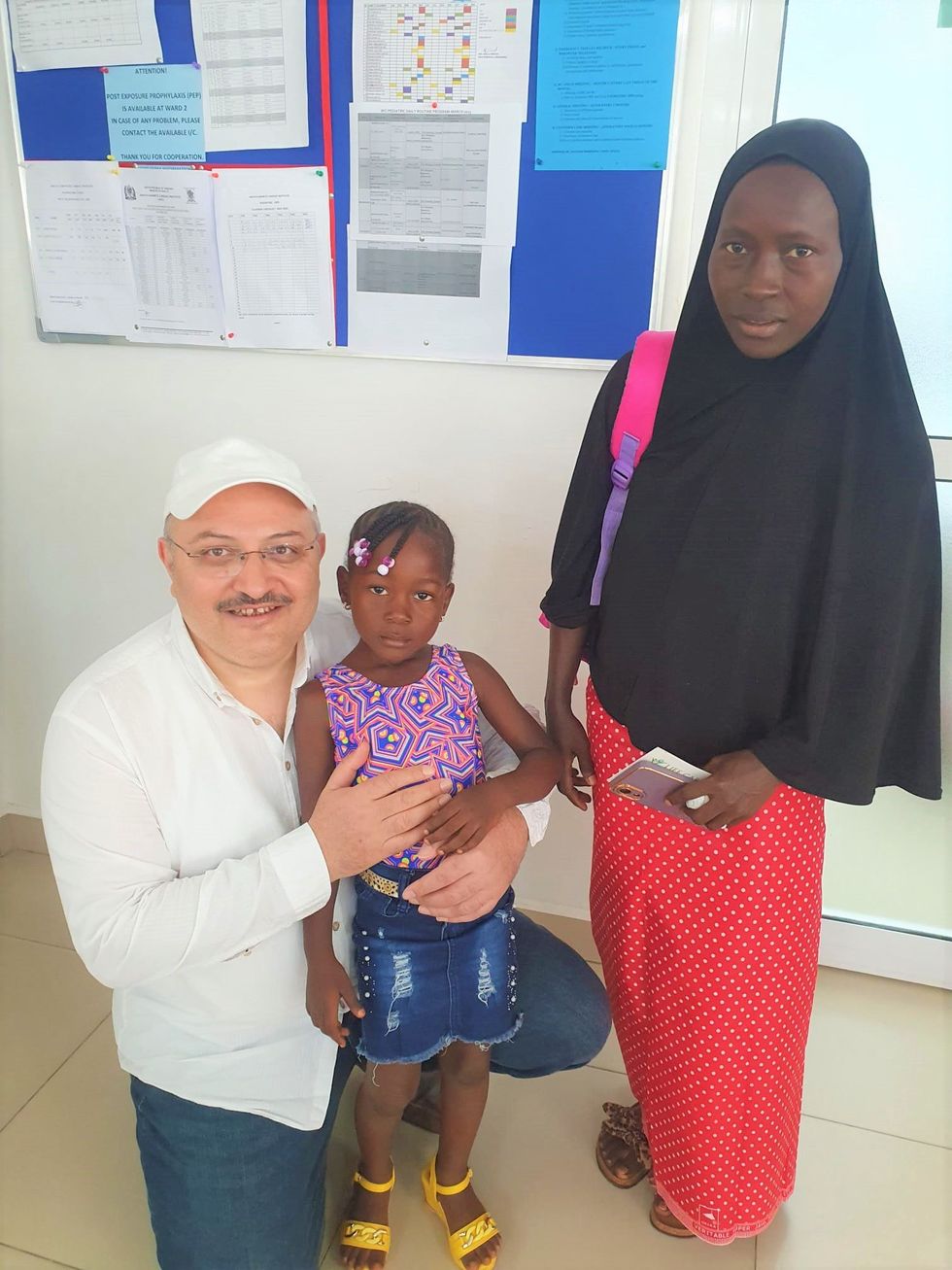
“We started this institute in 2015 but at that time we didn’t manage to do a lot of procedures on children,” said Dr Peter Richard Kisenge, executive director, Jakaya Kikwete Cardiac Institute.
“We were taking patients (children) to India for surgery which costs 20 million Tanzanian shillings (per child) which is equivalent to almost $10,000. Most of our patients couldn't go to India because of their poor socio-economic status.
“Thank God to Muntada Aid who first came to us in 2015 and this is their seventh mission in the country. They have treated 477 children for various heart conditions. These patients probably would die prematurely if they didn’t get these interventions.
“I want to express my gratitude to Muntada Aid and H&K Cycle Club for helping the people of Tanzania, for helping the children. I hope the collaboration continues because the demand is very high. There are a lot of children who need the services we provide at our centre.”
Tanzania is the largest country in East Africa with a population of 61 million, 44 per cent of whom are less than 15 years old, making it one of the youngest populations in the world.
Congenital heart disease is the third leading cause of early death in children living in Tanzania, and access to adequate healthcare is scarce. For every 1,000 residents in Tanzania, there is only 0.02 physicians. In comparison, the United States has 26/1000.
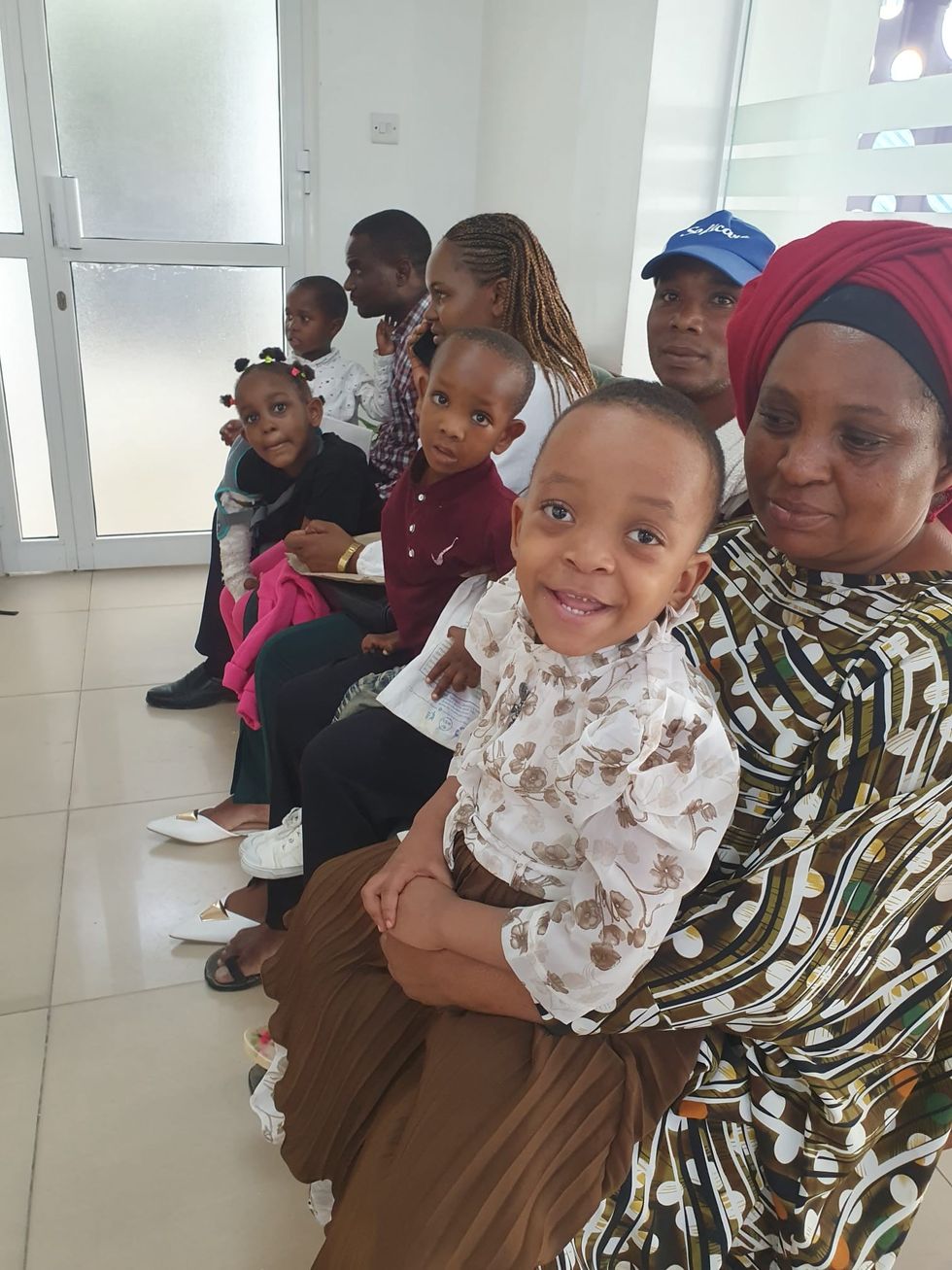
Muntada Aid organised for a team of surgeons, nurses, anesthetists, doctors and perfusionists to come to the Jakaya Kikwete Cardiac Institute.
On average, each day the team performed 14 cardiac catheterisations, a procedure where a catheter (thin, plastic tube) is fed through the veins or artery until it reaches the heart where numerous procedures can be done, such as widen or open up narrow or blocked blood vessels and close holes or blood vessels that shouldn’t be there.
The team performed around four open heart surgeries each day for the more complex cases.
Dr Naiz Majani, consultant pediatric cardiologist at JKCI, gave an insight into the impact the efforts of Muntada Aid and H&K Cycle Club has had at the hospital.
“This week is particularly special because we are helping many more patients compared to other weeks. When we are alone, in a day we'll do one or two surgeries and three to four cath (cardiac catheterisations) procedures a week. This week, we have done 12 surgeries and 48 cath procedures,” said Dr Majani.
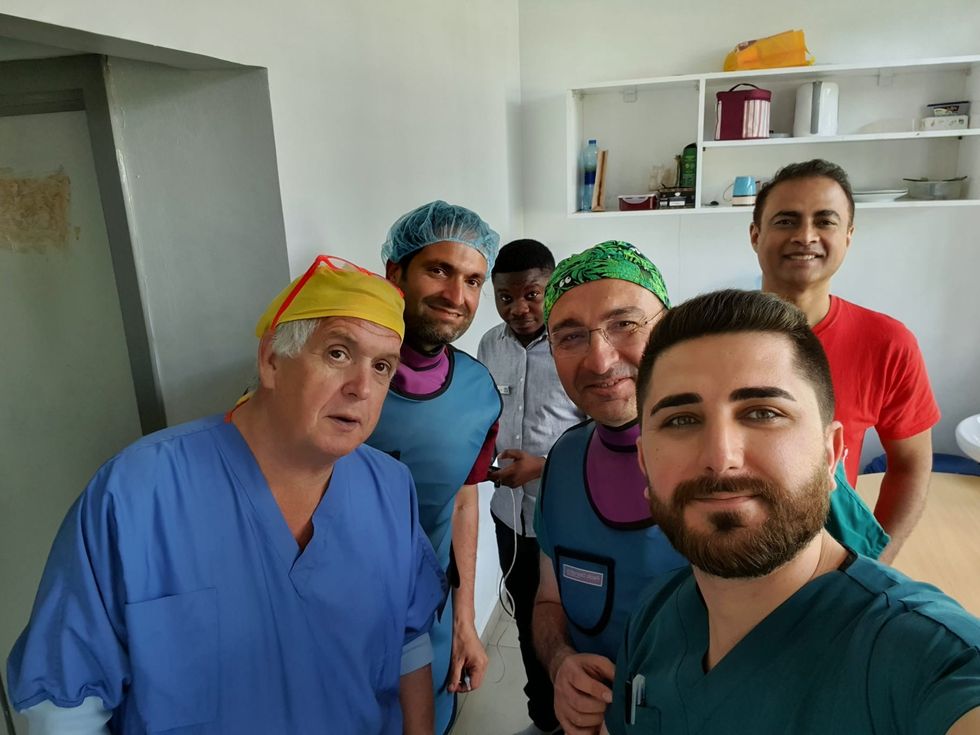
Dr Majani also revealed that not only did the foreign medical team carry out a vast number of procedures, they also provided valuable hands-on training to local clinicians. This is seen as key to the development of the institute as the in-house cardiologists will have the skills to do complex surgeries which they currently rely on foreign doctors.
“The transferring of knowledge is so important because doctors and nurses from Muntada Aid and the Jakaya Kikwete Cardiac Institute are working together and during this time there is a lot of exchange of knowledge which keeps our team up-to-date,” said Dr Majani.
She added: “We are really grateful to Muntada Aid for the service that they offering. But, also, our special thanks this year goes to the H&K cycling group for the donation that they contributed in making this mission possible.
“Tanzania is a developing country and most families cannot afford the expensive cardiac services that we are offering. With this mission and this medical team coming here, it ensures that we are able help many children that we wouldn’t have when we are alone.”
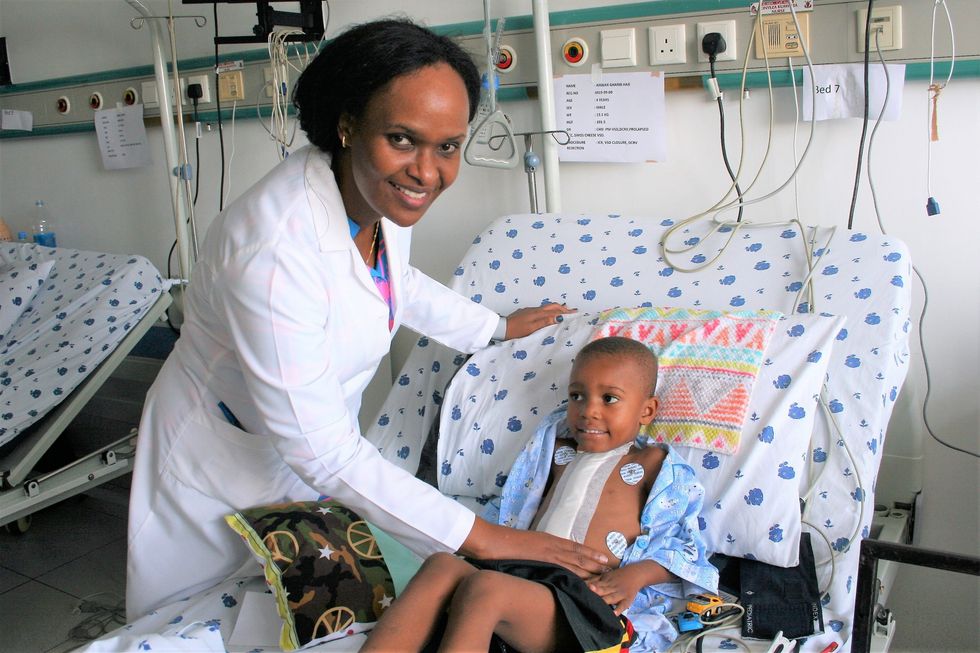
The medical team was led by Professor Dr Abdullah Erdem, a specialist in the field of Cardiology & Cardiovascular Surgery, at the Medipol Mega University Hospital in Istanbul, Turkey.
Prof. Dr Erdem ensembled a team of 16 pediatric heart specialists from Turkey, Egypt and Holland for this mission. Every single member of the medical team were there in a voluntary capacity.
They worked more than 12 hours each day for the five days they were at the JKCI, often working through their lunch breaks in order to help as many children as they could.
“We came here for the sake of God, for charity purposes. If you don't help these children, maybe their life span will be very short or they will live in very uncomfortable conditions,” said Prof. Dr Erdem.
“We came here as a team, nobody wants money. However, the devices we use are very expensive and it’s thanks to Muntada Aid and the money raised by H&K cyclists that we can buy these materials.”
Soifur Rahman, one of the members of H&K Cycle Club, took part in the charity ride to raise funds for this mission. He was among the three cyclists that visited the JKCI to meet the families and watch some of the procedures being carried out.
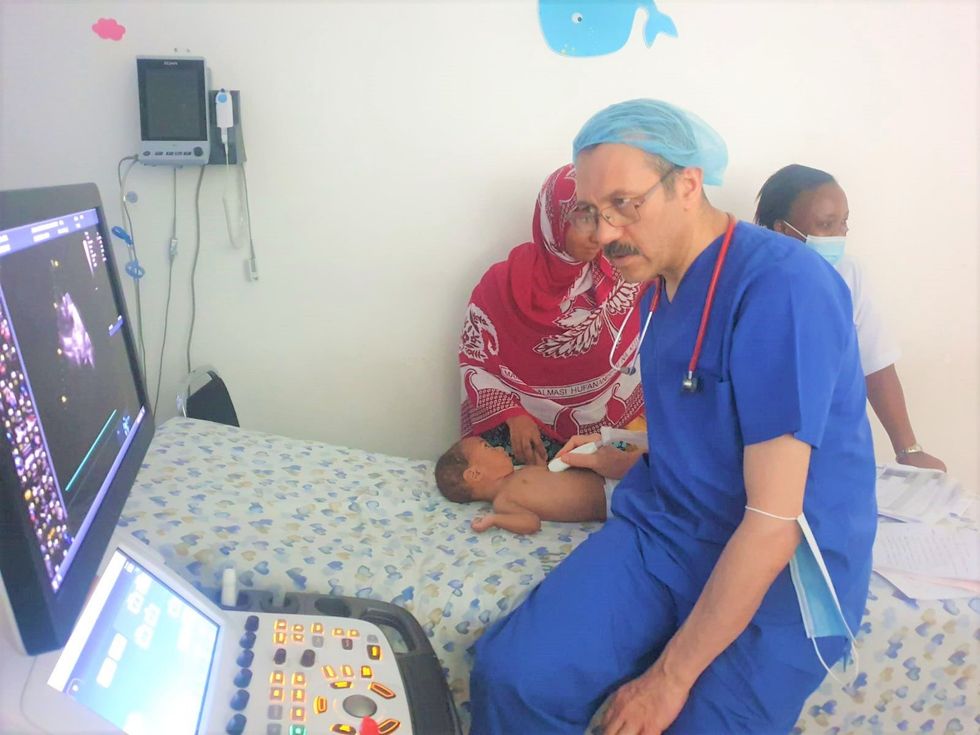
“It’s been an eye opening experience, an emotional experience, to say the least. To witness first-hand the doctors from the foreign medical team and the local medical team working so hard together to provide these life changing procedures has been an incredible experience,” said Rahman.
“There's been children young as six months who have undergone surgeries that took many hours, whilst others had more simple solutions, but every single operation that went through this past week, they all had high risk elements.
“I couldn't speak to many of the parents because as you can imagine they are all worried about their children but they are very appreciative of the efforts to put this mission together.”
Another one of the cyclists in Tanzania, Dewan Khan, raised a remarkable £10,500 on his own and said he was looking forward to telling his donors how much of an impact their generosity has had.
“This has been a great opportunity to come here and see what happens behind the scenes. You can ask for donations but now I can go and tell people exactly what their money is being used for and the lives they helped save.
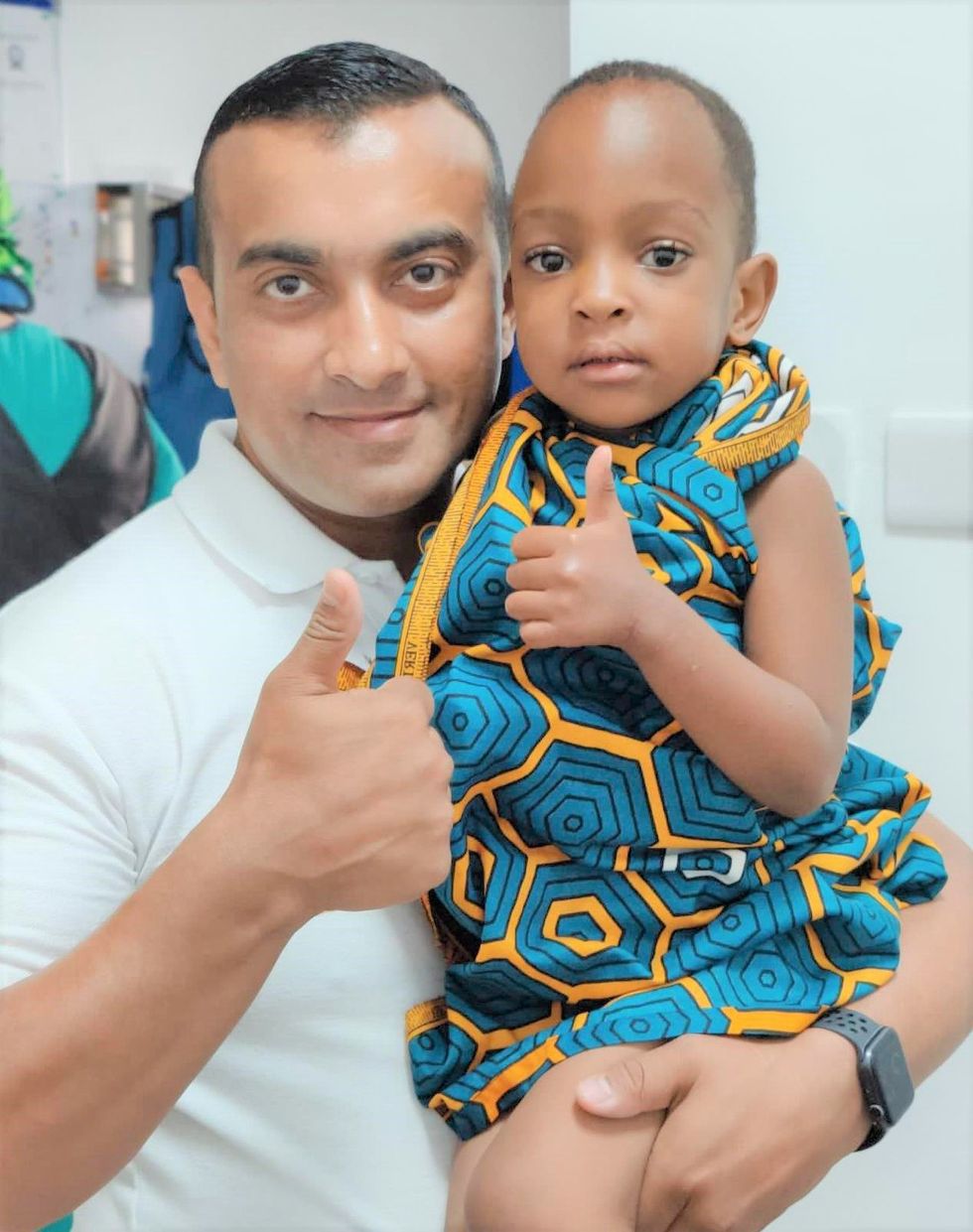
“I just want to thank the donors because without them this mission wouldn’t have been possible.”
H&K Cycle Club was founded in 2013. They have done numerous charity rides in the past decade helping projects across the globe.
These include, building 25 large communal solar powered water wells in Niger; 52 brick homes in refugee camps in Syria; building a maternity clinic in a refugee camp in Lebanon; installed solar power systems in two hospitals in Palestine; provided 1,1000 cataract surgeries in Bangladesh; built a school in Ethiopia and a bread factory in Yemen.
This year was the second year the club has done the Hijrah ride. Last year, they also raised over £100,000 which went towards Muntada Aid’s Little Hearts project.
They remain the only cycling club to not only complete this ride but to even attempt it.
Shamsul Abdin, a co-founder of the club, reveals a desire to feel connected to the prophet Muhammad was the catalyst for the Hijrah ride.
“Over 1,444 years ago, prophet Muhammad made the journey to Madinah, fleeing persecution in his birth place in Makkah. This journey was a turning point for Islam, hence Muslims all over the world will know this significant chapter in Islam,” said Abdin.
“We wanted to follow the footsteps of the prophet. Instead of camel, we used our bikes. In 2022, despite all the obstacles and challenges we faced, we managed to complete the world’s first cycle ride from Makkah to Madinah over three days.
“We are not accustomed to the Middle Eastern climate. Cycling through the desert, in 40-plus degrees heat, 18 mph headwind, the stand storm and not to mention the 100 miles of straight road (each day) with nothing but desert as your view can severely impact you mentally.
“However, the harder the battle, the sweeter the victory. The Hijrah ride is definitely a success.”
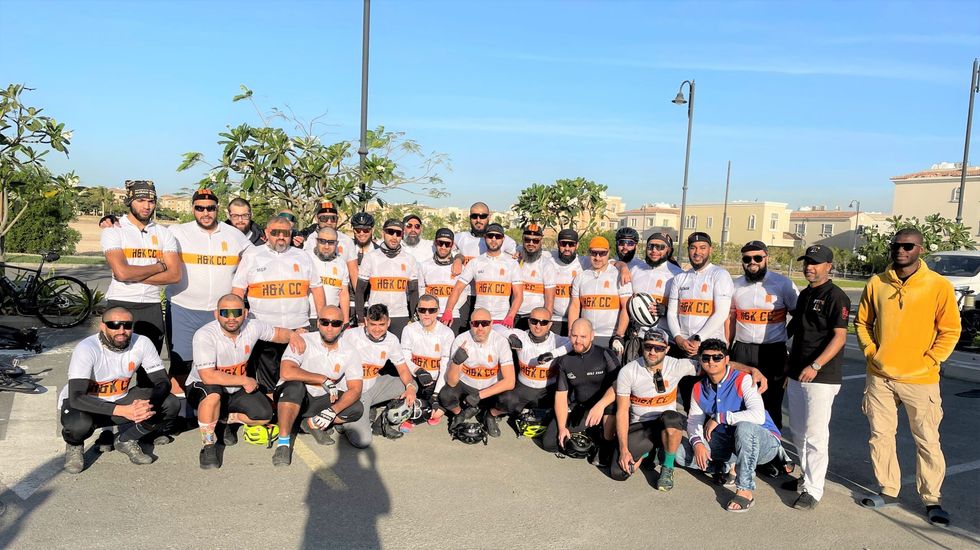
The Hijrah ride’s slogan of “a journey like no other” is apt when you consider the emotional and physical strength needed to complete such a ride.
Over three days, the riders not only have to tackle the 350 miles, they have to do it in the searing heat of the Saudi desert as well as unrelenting wind and sandstorm.

Sulaimaan Amerat, at only 19, was the youngest rider to take part in this year’s Hijrah ride. His achievement was even more memorable as he did the ride alongside his 52-year-old father, Shamoon.
During the second day of the ride, after completing over 100 miles, most of which was in the face of battering headwind, an exhausted younger Amerat was asked what kept him going, he said: “At the moment, I don’t know what to say, it’s just a flood of different emotions.
“I felt tired but I went to a different zone after thinking of the Little Hearts project and all the children so then my mind shut off and my body took over and I managed to get through the day.”
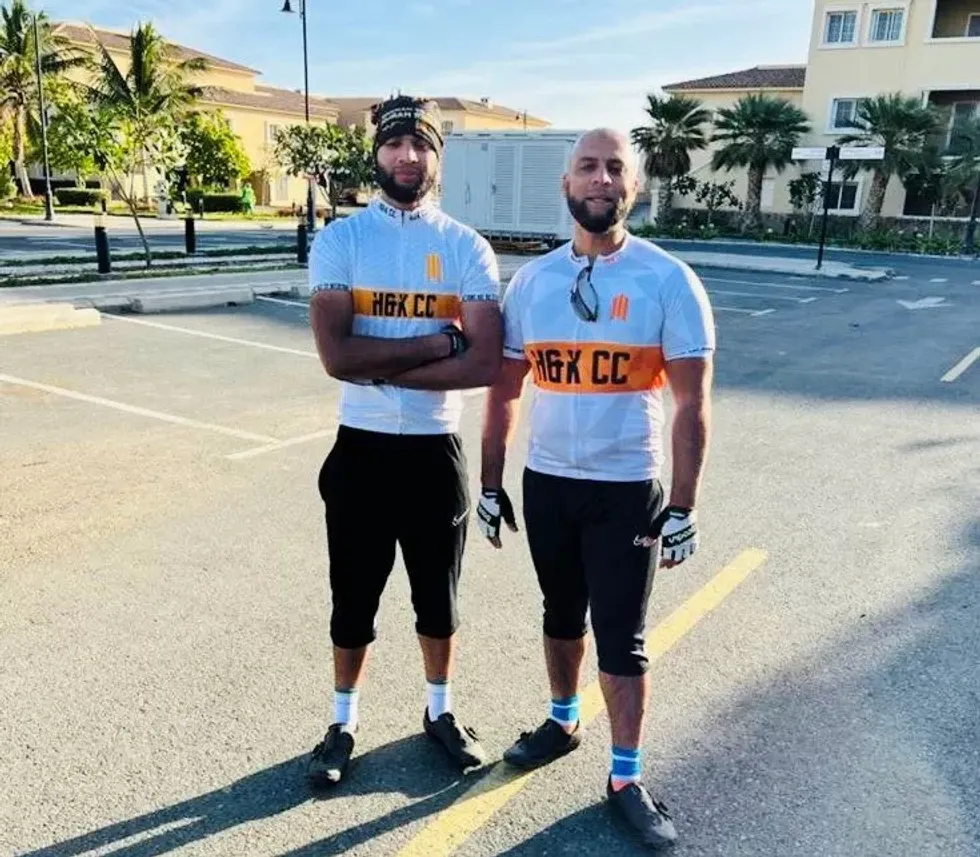
Amerat showed courage and maturity beyond his years as support staff noticed how he intentionally fell back from his group so he could offer encouragement to some of the other riders who were struggling to keep up.
“That’s what the Hijrah ride and H&K Cycle Club is all about – it’s a brotherhood,” said Amerat.
Aside from the Hijrah ride, the club do an annual national ride which encompasses a six-week training programme for new riders that culminates with a long distance which this year is London to Bournemouth in July.
They have also been undertaking an audacious attempt to cycle from London to Istanbul, Turkey in a ten-year odyssey. Starting in London in 2013, the group cycles through three cities a year and then goes back the following year to where they left off the previous year and cycles another three cities. The journey will come to an end in August when they cycle from Sofia in Bulgaria to Istanbul.
Despite not being a registered charity – all members are volunteers – H&K Cycle Club has raised well over a million pounds with their bike rides, with single rides often reaching over £100,000 in donations.
Despite being the driving force of the club, Abdin still finds it difficult to believe what they have managed to achieve.
“Ten years ago, nine of us went for a cycle challenge in Europe to raise money for charity. With hardly any training and very little knowledge of road cycling, we pursued into the unknown. We definitely didn’t look the part either. Trainers, long tracksuit bottoms and rucksacks on our back,” said Abedin.
"As expected, it was very challenging, but we got back feeling like we have conquered the world. The strength of brotherhood between us grew stronger. The journey we went through, we wanted others to experience.
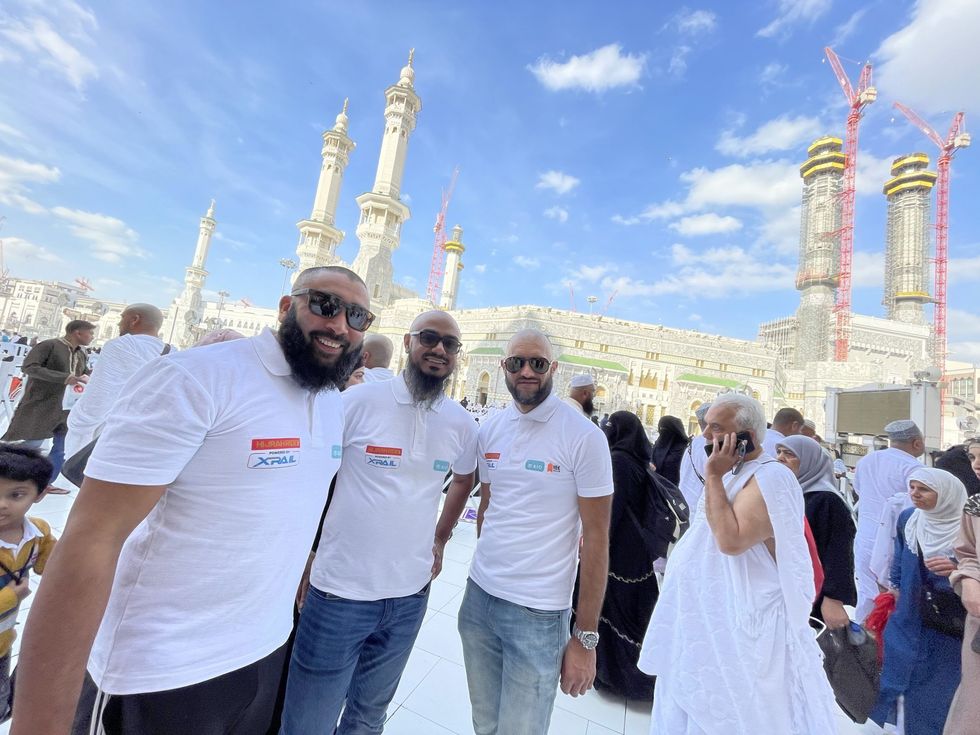
"The club’s purpose is to promote cycling as way to help fitness and enjoy the company of like minded people. Muslim men from south Asian backgrounds were not into cycling. The club helped break that barrier and has inspired hundreds to take up cycling.
"The age range of club members are from 18 to 56. Strong brotherhood and camaraderie is what everyone experiences when they join the club. The national ride now attracts over 165 riders from various parts of the country."
To donate to next year’s Hijrah ride, visit – HIJRAH RIDE 1445- A Journey Like No Other - JustGiving
